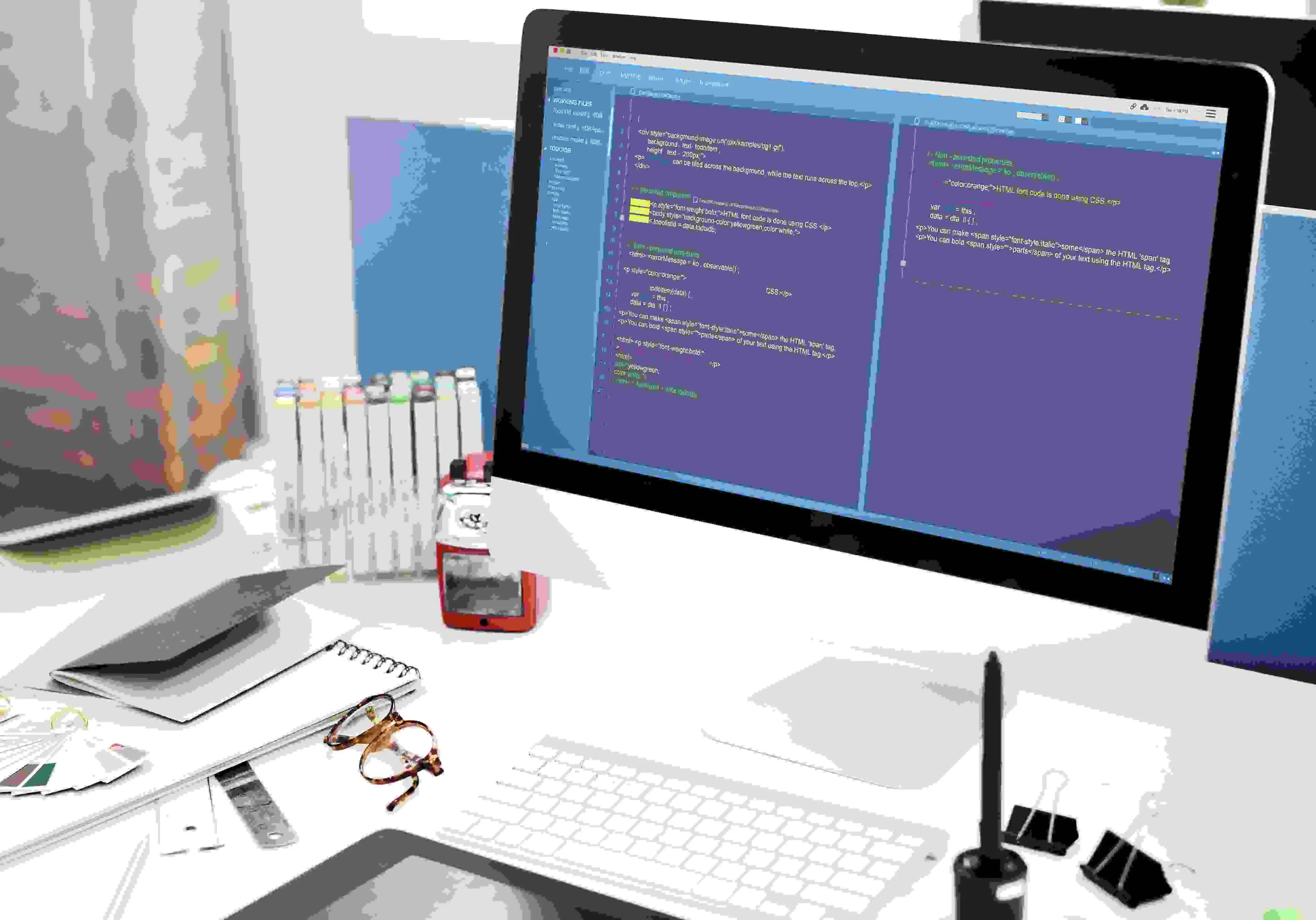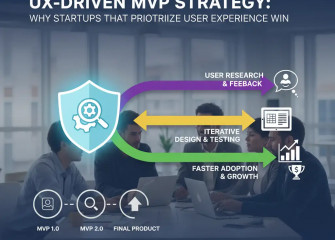Improving Healthcare with Custom Software Solutions
Published by: Abhinav K VDec 06, 2024Blog
A History of Patient-Centered Healthcare
The hospital environment of today is dynamic and always changing to put quality
over quantity. With this change, patient-centered healthcare has emerged,
prioritizing individualized treatment above standardized procedures. Patients are
people in this new paradigm, with distinct identities, interests, and wants. They are
not just numbers. The facilitation of this transition by custom healthcare software
solutions, particularly through Custom Software Development in Canada, allows
healthcare professionals to offer individualized, effective, and excellent treatment.
Technology's Place in Treatment-Centered Care
Leading this transition to patient-centered treatment are technical developments.
Custom software solutions are now potent instruments for streamlining processes,
increasing productivity, and enhancing patient results. These technologies make it
possible for healthcare professionals to customize their offerings to meet the specific
requirements of each patient, therefore creating a more individualized and
responsive healthcare setting.
Patient Data Management and Collection Simplified
Organizing the enormous volumes of daily patient data produced is one of the
biggest problems in healthcare. Data management has been transformed by
bespoke software solutions like patient portals and Electronic Health Records (EHR)
systems. Because EHR systems digitize patient records, healthcare professionals may
more easily access, evaluate, and distribute information. This guarantees real-time
information and makes quick decisions possible, which raises the standard of
treatment in the end.
Because patient portals allow patients to see their medical records without
limitations, they empower them even more. Patients are encouraged to collaborate
and interact in their healthcare journey by this openness. Through a safe and
easy-to-use website, they may check test results, go over treatment plans again, and
speak with their medical professionals directly.
Improving Patient-Provider Communication
The basis of treatment focused on the patient is effective communication.
Telemedicine platforms and smartphone applications are examples of custom
software solutions that help patients and providers communicate more effectively.
Remote consultations made possible by telemedicine systems let people get
medical care and services from the comfort of their homes. By doing this, time and
resources are saved and accessibility is increased while also less in-person visits are
required.
Because mobile applications let consumers schedule appointments, get timely
reminders, and see health information on their cellphones, they further improve
communication. Customized experiences made possible by these applications
promote greater patient involvement and pleasure.
Modifying Treatment Plans
Today's healthcare depends on personalization. Custom software solutions enable
medical professionals to design customized treatment plans that take into account a
number of elements, such as personal values, lifestyle, and medical history. Machine
learning algorithms and artificial intelligence (AI) power decision support systems,
which examine huge datasets to find patterns and provide well-informed
recommendations. Because of this data-driven methodology, doctors may create
treatment programs that are customized to the particular requirements of every
Patient.
By pointing out possible health hazards and making preventative actions possible,
predictive analytics improve customization even more. Healthcare professionals may
foresee issues and take preventative action by examining trends in patient data,
which enhances patient satisfaction and results.
Benefits of Healthcare Custom Software Solutions
Including bespoke software into healthcare systems has several advantages and
completely changes the way treatment is provided and received.
Greater Experience and Satisfaction of the Patient
Timely and effective healthcare delivery is the outcome of custom software solutions'
streamlining of procedures and reduction of human labor. The whole experience of
patients is much enhanced when they are not need to negotiate intricate
bureaucratic procedures or wait lengthy hours for consultations. Patient involvement
and satisfaction are increased by customized treatment plans and simple access to
health information via patient portals, which also helps patients have a good
impression of the medical system.
Better Coordination of Care
Coordinating and communicating with healthcare professionals is made easier with
the use of custom software. By removing redundancy and duplication and
guaranteeing that every team member has access to pertinent patient information,
these solutions save costs and increase productivity. For instance, specialized
software helps different healthcare professionals--such as primary care doctors,
endocrinologists, dietitians, and pharmacists--work together more successfully in
the treatment of chronic diseases like diabetes. This well-planned strategy
guarantees thorough, individualized treatment and improves patient results.
Empowering of the patient
Fundamental to bespoke software solutions is the idea of patient empowerment.
These solutions provide patients the information and resources they need to
participate fully in their medical treatment. Custom software encourages
independence and educated decision-making by providing access to health data,
learning materials, and self-monitoring tools. Patients become active participants
who improve their general well-being and health results rather than just receiving
Treatment.
Taking Up the Challenges in Patient-Centered Healthcare
Custom software solutions in healthcare present some difficulties even with their
many advantages. Among the obstacles that must be removed are communication
breakdowns, restricted access to patient data, and a dearth of individualized
treatment alternatives.
Systems of Fragmented Healthcare
Many times, the healthcare system already in place is incoherent and ununified,
which results in manual mistakes and inefficiency. Integrating several facets of
healthcare delivery, custom software solutions may provide a unified and effective
system. These technologies provide smooth data interchange and communication,
therefore, reducing the fragmentation that impedes the provision of quality care.
Roadblocks to Communication
Patients' focused care depends on smooth communication between them and their
doctors. Effective conversation may be hampered, however, by language problems,
medical jargon, and other issues. Through translation services, medical language
simplification, and user-friendly interfaces that improve comprehension and
involvement, custom software solutions may tackle these problems.
Limited Patient Data Access
When fragmented data systems and interoperability problems prevent access to
patient data, duplicate tests and treatment delays result. Through the guarantee of
smooth data interchange and integration, custom software solutions may close
these gaps. This lowers needless treatments and delays, which increases patient
happiness in addition to improving care efficiency.
Insufficient Customized Treatment Choices
Oftentimes, traditional healthcare procedures take a generic approach that ignores
the unique requirements of each patient. Personalized treatment plans that consider
many elements particular to each patient are made possible by custom software
solutions. Through the use of artificial intelligence and data analytics, these solutions
give healthcare professionals the information they need to provide individualized
treatment, enhancing patient satisfaction.
Reported Data Analytics
Modern healthcare depends on data analytics to help providers make better
decisions and enhance patient outcomes. Comprehensive reporting capabilities
included into Asahi's software solutions enable healthcare organizations to produce
in-depth reports on clinical results, financial metrics, and key performance indicators.
This method based on data increases effectiveness and precision in the provision of
Healthcare.
Ultimately Future medical practice will be patient-centered, and implementing bespoke
software solutions will be essential to bringing this vision to pass. Custom Software
Development in the USA changes the healthcare environment by improving
communication, streamlining processes, and personalizing care to guarantee that
patients get the best, most specialized care possible



 AI-Powered MVP Development: Sm....
AI-Powered MVP Development: Sm....
 Build Your MVP Faster: AI Tool....
Build Your MVP Faster: AI Tool....
 ColdFusion to Lucee Migration ....
ColdFusion to Lucee Migration ....
 ColdFusion vs Lucee: Which Is ....
ColdFusion vs Lucee: Which Is ....
 Is ColdFusion Still Relevant i....
Is ColdFusion Still Relevant i....



Your Trusted Software Development Company